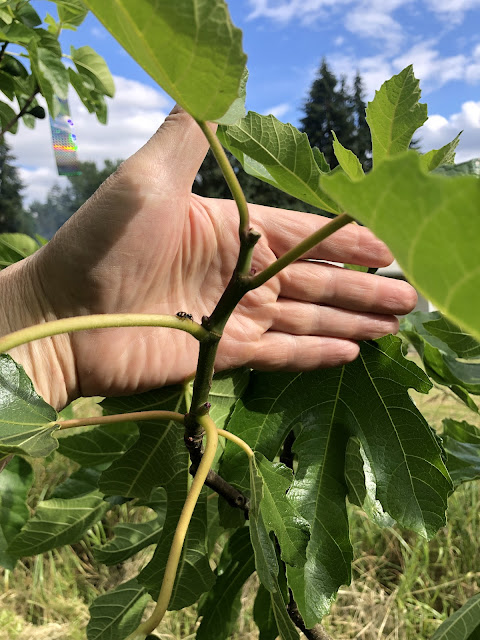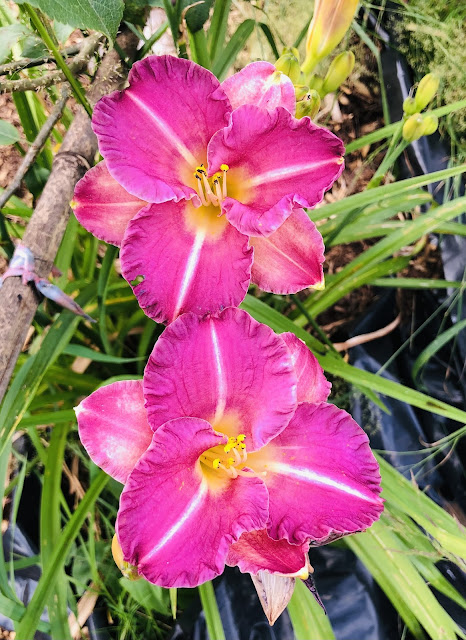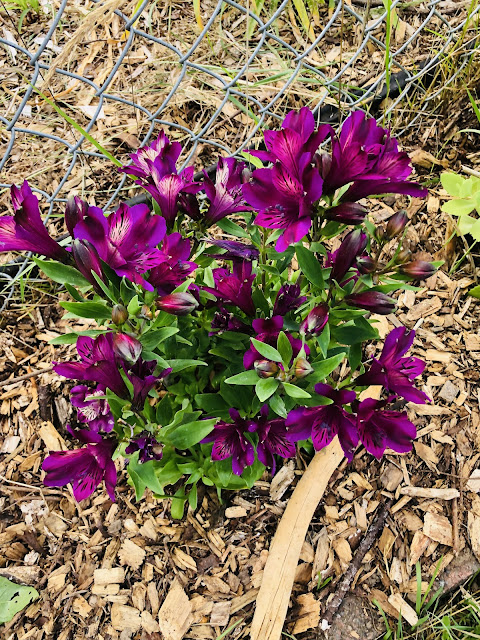Here is the Brunswick fig tree that I moved from Vancouver to Battle Ground in late November, 2012.
On the pickup trick. (I really can't believe I did that)
Ready to replant. The roots were more shallow than expected.
Here it is today. This tree settled in and established the first year. Gradually, most of the original scaffold branches died. Underground shoots grew quickly to replace them, creating a multi-trunk tree. Originally, I grew this tree from a cutting, so I know that underground originating shoots are identical to the original tree.
Here is the second large tree that I moved. This one was "Petite aubique" (supposedly). I moved it in late November, 2017. Originally, I planted this tree in 2001. I had bought it by mail order from a nursery that was located then in S. Carolina. They marketed it under different names, originally Petite negri. I later corresponded with fig enthusiasts who decided it was Petite aubique. This tree is not vigorous, but over time can grow to a good size. Here it was when I dug it up, Nov 2017.
Again, it settled in during that winter and the following year, although new growth was slow during the first year. This also is a non-grafted tree (almost all figs are not grafted), and habitually sends out new shoots from underground buds. Gradually, most of the scaffold for this tree also died, and was replaced by new shoots. I could have trained it again to a single trunk, but I'm fine with the multi-trunk method. A clump of lemon balm came along with the tree, and is still growing around the trunk.
I usually don't water or fertilize my fig trees. However, I wonder if I did, would shy or late performers produce more, or earlier, or larger fruit? So this year, I'm planning to give each of the smaller varieties or slower / later / less productive ones, some general purpose fertilizer once monthly and a few buckets of water every week.
Here are fig buds forming on the Petite aubique fig tree now.
It's not the most clear photo. I posted it because it shows a "little friend".
















